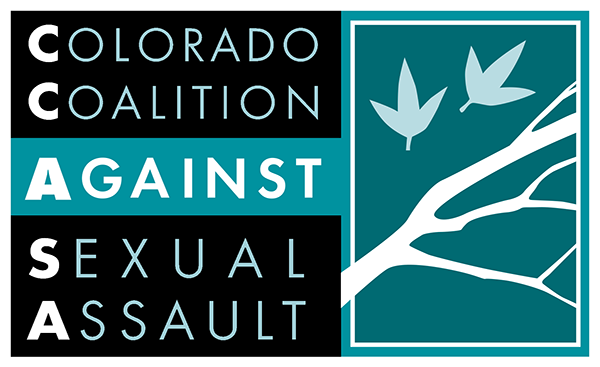Financial Transparency Statement
CCASA has received questions about how we spend our money. As part of our commitment to transparency, we are happy to provide information.
CCASA’s Role:
An important part of understanding CCASA’s financials is understanding our role in the victim services ecosystem.
As a statewide Coalition, CCASA does not provide direct services to survivors (although we occasionally have survivors contact us and then we provide crisis support, information, and referrals to local service providers). In fact, we receive a grant specifically for Coalition work that cannot be used for direct services. Our other funding also focuses on engaging in policy and systems advocacy and providing training and technical assistance.
CCASA plays a critical role in advocating on behalf of our members and survivors at the State Legislature and with State governing bodies, including the work we have been doing for many years to secure stable state-level funding for direct victim services (e.g., through the successful passage of Prop KK). Additionally, CCASA also advocates for federal victim services funding. For example, CCASA is currently a party to a couple lawsuits to protect victim service funding at the federal level.
CCASA’s other key role is to provide training and support to local service providers on best practices for serving survivors as well as for organizational sustainability. For example, CCASA staff can support our members who are direct service providers with grant writing, financial management, and board development. In this role, CCASA helps direct victim services organizations sustain and strengthen services for survivors across the state.
CCASA’s Budget:
Like most nonprofit organizations in the victim services field, our budget primarily funds staff since most of our work is done through staff time and effort.
Staff Salaries and Benefits
Organizations and services for survivors suffer when there is high staff turnover, and critical knowledge and expertise are lost. Due to poor wages and benefits in the nonprofit sector in general, and victim services in particular, staff turnover is high. CCASA is proud to have over 50% of our employees who have been with the organization for 4 or more years.
CCASA has an obligation to our employees to provide a living wage, especially given the emotional and mental toll that working on an issue like sexual violence takes on staff. Individual staff salaries also take into account experience, skills, and geographic location.
CCASA follows the IRS three-step safe-harbor procedure for determining executive staff salaries and benefits. This includes 1) our Board of Directors setting the Executive Director’s salary and benefits, 2) reviewing compensation comparability data (e.g., job postings for EDs at comparable organizations and the Colorado Nonprofit Association’s Salary Survey), and 3) keeping records of how the ED’s salary was determined. Our Board of Directors also uses this process for setting the starting salary ranges for all staff positions.
Understanding the IRS Tax Form 990
The 990 is primarily a tool for the IRS to determine tax compliance and accountability. If you’re interested in understanding what information is included in the 990 and why, this presentation by Rebecca Tervo, CPA, provides great information: https://www.youtube.com/watch?v=F_lgc-a9xz8
It can also be informative to compare the 990s of similar organizations. For CCASA, that might include looking at 990s for other statewide organizations and coalitions, such as:
- Colorado Immigrant Rights Coalition (CIRC)
- Colorado Organization for Latina Opportunity and Reproductive Rights (COLOR)
- Colorado Organization for Victim Assistance (COVA)
- Cobalt
- One Colorado
- Rocky Mountain Victim Law Center
- Violence Free Colorado
- WINGS Foundation, Inc.
As an organization that values respect, accountability, and collaboration, we welcome questions and direct conversations. If you’d like to know more about our finances, please contact our Executive Director, Brie Franklin, at brie@ccasa.org

